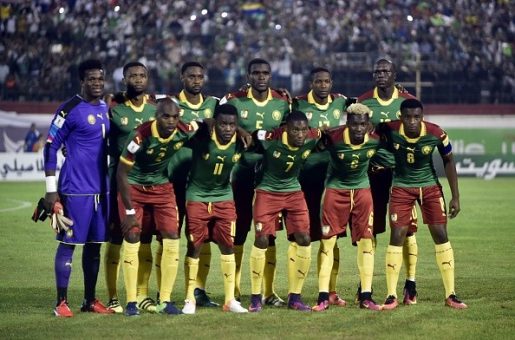For the first time in its history, the premier African football tournament – the Cup of African Nations (AFCON) – will take place in mid-year. But having the tournament in mid-year is not the only historical story. Perhaps, a bigger one is that the AFCON will welcome 24 teams.
The expansion from 16 to 24 teams has been criticised in some quarters on two key grounds: the first is that it will dilute the quality of football at the tournament and the second is that only few countries will have the financial means to host such a mega event.
There is no denying that those points are strong. However, the counter is that the expansion provides more benefits that diminish those. Well, lets examine the two drawbacks and then analyse anticipated benefits.
The Criticisms
The possibility of dilution should not be easily dismissed because logic supports that perspective. However, dilution assumes that the current format of 16 teams marks precisely the threshold for the top African teams needed to make the tournament exciting and balanced. In my view, this claim is not accurate.

There are certainly more than 16 teams in Africa that can make the tournament exciting and balanced. In the last few AFCONs, several top teams including Nigeria, Egypt, and South Africa have failed to qualify for a tournament of 16. Yet, those tournaments without those three and others still provided good balance and excitement.
However, by increasing the number of participants to 24, the only perennial top team likely to miss the tournament is Zambia. That means most of the big teams will be present which was not the case in recent tournaments. While several minnows also got through with a 24-team format, it did not deny most of the big teams. Therefore, while dilution possibly exists it is more likely mild.
The second point made by critics is also quite strong. We have already seen Cameroon, which was to host the 2019 tournament, dropped as host because of its inability (in the main) to prepare for a 24-team event after winning the bid to host 16 teams. The burden of preparing for 24 teams is enormous – it requires more large capacity stadia, more training pitches, hotels, and improved transportation systems.
Not many African countries can hold such an event without help. There are only a few that can. The rest will now have to depend on securing one or two others for a co-hosting arrangement. We have already seen co-hosting work just fine in Africa as well as elsewhere. Thus, this criticism is not enough to deny a 24-team format.
The Benefits
Now, which benefits outweigh the two concerns mentioned above? There are a few including additional revenue for the Confederation for African Football (CAF), more opportunities for African fans to be involved in tournament games, and opportunities for developing African talents and teams across the continent.
Those three benefits are quite valuable when considering the goals of an entire continent and not dwelling on selfish goals of an individual fan or a single country.
Revenue from broadcasting and marketing deals are certain to increase with far more interest from several African countries that will be at the competition. It means a larger audience reach for the media and market buyers. This is good news for Africa and CAF because the AFCON serves as a cash cow supporting other continental tournaments that do not generate similar revenue.
Most Africans become interested in the competition because their team is at the tournament. Thus, it isn’t magic to realise that increasing the number of teams also means increasing the number of Africans interested in the competition. We have already pointed to how this leads to opportunity for more revenue. But increased interest also means that actual number of fans travelling to the tournament will generate additional revenue not just for the host country but also for CAF.
Importantly, teams improve with increased opportunity to compete against better teams. This is exactly what this new format also offers. Table 1 shows a list of 8 teams that will be at the 2019 AFCON that would have been left at home without the expansion to 24 teams.
They will offer the additional audience that the competition needs but importantly several are making it for either the first time or adding to rare appearances. Such appearances will become regular and gradually improve several of their teams and players. Remember, African teams began to experience better play when their players began to play in Europe, competing against top professionals.
In South America, teams like Venezuela and Bolivia have gained by competing against the likes of Brazil and Argentina. This new format, in the AFCON, offers opportunity to play in the tournament to erstwhile minnows. That participation will develop their players plus team play, ensuring a wider development of the game in the continent.
There is little doubt that the benefits from the expansion outweigh perceived drawbacks. In fact, a closer examination shall conclude that one of the two drawbacks is temporary. The dilution claim is not as significant as claimed and with the benefit of developing football across continent dilution is more likely temporal. This is a CAF decision that most of us should applaud because it brings far more value than it does drawbacks. It is because of this that I look forward to an exciting mid year mega event.
Table 1
TEAMS BENEFITING
FROM EXPANSION TO 24 TEAMS
Benin Republic
Burundi
Cameroon (Defending Champions)
Congo DR
Kenya
Madagascar
Namibia
Tanzania









